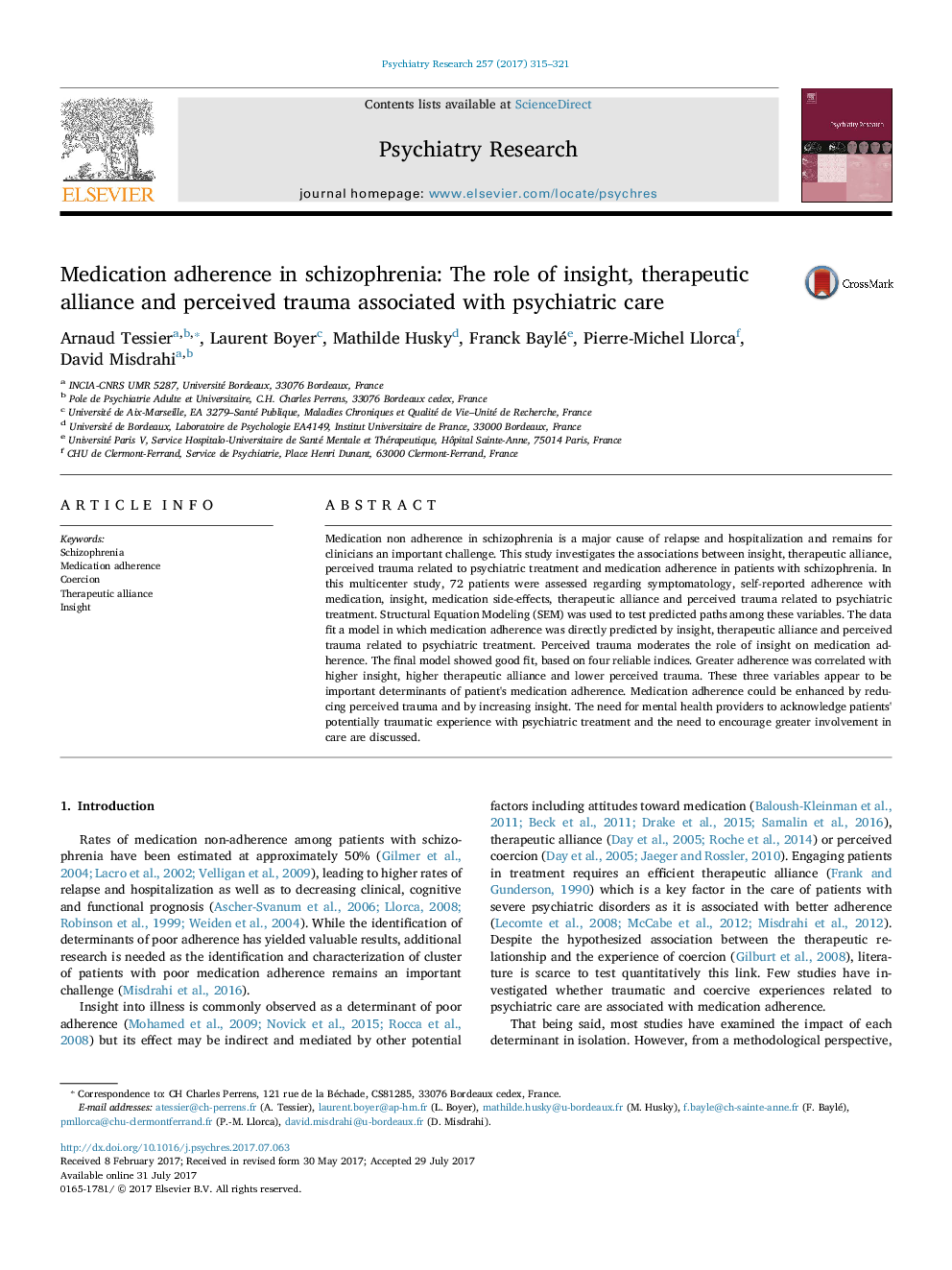ترجمه فارسی عنوان مقاله
پایبندی به دارو در اسکیزوفرنی: نقش بینش، اتحاد، درمانی و آسیب پذیری مرتبط با مراقبت های روانپزشکی
عنوان انگلیسی
Medication adherence in schizophrenia: The role of insight, therapeutic alliance and perceived trauma associated with psychiatric care
| کد مقاله | سال انتشار | تعداد صفحات مقاله انگلیسی |
|---|---|---|
| 127260 | 2017 | 7 صفحه PDF |
منبع

Publisher : Elsevier - Science Direct (الزویر - ساینس دایرکت)
Journal : Psychiatry Research, Volume 257, November 2017, Pages 315-321
ترجمه کلمات کلیدی
جنون جوانی، پایبندی به دارو، اجبار اتحاد درمانی، بینش، بصیرت، درون بینی،
کلمات کلیدی انگلیسی
Schizophrenia; Medication adherence; Coercion; Therapeutic alliance; Insight;

